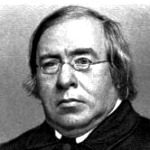Quotes about Gentleness
Perhaps no grace is less prayed for, or less cultivated than gentleness. Indeed it is considered rather as belonging to natural disposition or external manners, than as a Christian virtue; and seldom do we reflect that not to be gentle is sin.
Gentleness is an active trait, describing the manner in which we should treat others. Meekness is a passive trait, describing the proper Christian response when others mistreat us.
The Practice of Godliness, NavPress, 1996, p. 181. Used by permission of NavPress – www.navpress.com. All rights reserved. Get this book!
Both gentleness and meekness are born of power, not weakness. There is a pseudo-gentleness that is effeminate, and there is a pseudo-meekness that is cowardly. But a Christian is to be gentle and meek because those are Godlike virtues… We should never be afraid, therefore, that the gentleness of the Spirit means weakness of character. It takes strength, God’s strength, to be truly gentle.
The Practice of Godliness, NavPress, 1996, p. 181-182. Used by permission of NavPress – www.navpress.com. All rights reserved. Get this book!
There were earnest longings that all God’s people might be clothed with humility and meekness, like the Lamb of God, and feel nothing in their hearts but love and compassion to all mankind; and great grief when anything to the contrary appeared in any of the children of God, as bitterness, fierceness of zeal, censoriousness, or reflecting uncharitably on others, or disputing with any appearance of heat of spirit.
Meekness has nothing to do with being weak or passive. Meekness is power harnessed by love. It is an expression of humility that will not bristle or defend when challenged about motives.
The meek are those who quietly submit themselves to God, to His Word and to His rod, who follow His directions, and comply with His designs, and are gentle toward all men.
The man who is meek is not even sensitive about himself. He is not always watching himself and his own interests. He is not always on the defensive… To be truly meek means we no longer protect ourselves, because we see there is nothing worth defending… The man who is truly meek never pities himself, he is never sorry for himself. He never talks to himself and says, “You are having a hard time, how unkind these people are not to understand you.”
The higher people are in the favor of God, the more tender they are.
[Gentleness] has nothing to do with weakness, timidity, indifference, or cowardice. It was used of wild animals that were tamed, especially of horses that were broken and trained. Such an animal still has his strength and spirit, but its will is under the control of its master… Meekness is power under control. Biblical gentleness is power under the control of God.
Meekness is not to be confused with weakness: the meek are not simply submissive because they lack the resources to be anything else. Meekness is quite compatible with great strength and ability as humans measure strength, but whatever strength or weakness the meek person has is accompanied by humility and a genuine dependence on God. True meekness may be a quality of the strong, those who could assert themselves but choose not to do so.
Tenderness will win hearts so hardened that nothing else can move them. Truth spoken in love goes directly to the heart of the hearer and calls forth a kind response… It overcomes prejudice and hardness… It melts and wins where the most logical argument, the most terrible warning, and the severest threatening would produce no more impression than the falling of dew upon a block of granite (Wilson Hogg).
A Hand-Book of Homiletics and Pastoral Theology, Free Methodist Publishing House, 1919, p. 342-343.
Most churches have plenty of strong personalities but a shortage of gentleness (Marshall Shelly).
Ministering to Problem People in Your Church, Bethany House Publishers, 2013, p. 135. Used by Permission.
The Greek word the Bible often translates “gentle” is epiekes. It technically has a richer meaning than any English word. In the language of the day, it was used in a way similar to being kind, courteous or tolerant. Patience to endue injustice, mistreatment or disgrace. Yielding. Willingness to remain self-controlled when wronged. Humility. Someone once said it could be called “graciousness of humility.” This word shows up when describing the character of an elder who must not be “pugnacious, but gentle (epiekes)” (1 Tim. 3:3). In Titus 3:2 we are “to malign no one, to be peaceable, gentle (epiekes).” James tells us the wisdom that comes down from above is, “First pure, then peaceable, gentle” (epiekes). In Philippians 4:5 we are to “let [our] gentle (epiekes) spirit be known to all men.”
Gentleness imitates the character of Christ. Paul pleaded with the Corinthian church “by the meekness and gentleness of Christ” (2 Cor. 10:1). Jesus came down to earth as Almighty God for 33 years. Has there ever been or will there ever be and individual gentler than Him? The more you conform to the image of Jesus, the gentler you will become.
Gentleness says I will fight God’s wars God’s way. I can trust that His way of graciousness is right without resorting to manipulation or intimidation. It says I can bear up under abuse and not be mad at the world in the process. It says my testimony to Christ is more important than winning at any cost. It says His Spirit is working in me, producing the fruit of gentleness. As a matter of fact, gentleness is so important that Paul says in Philippians 4:5 that it should “be known to all men.”
The meek man is not a human mouse afflicted with a sense of his own inferiority. Rather he may be in his moral life as bold as a lion and as strong as Samson; but he has stopped being fooled about himself. He has accepted God’s estimate of his own life. He knows he is as weak and helpless as God declared him to be, but paradoxically, he knows at the same time that he is in the sight of God of more importance than angels. In himself, nothing; in God, everything. That is his motto.
Rudeness, yelling, anger, and swearing are a weak man’s imitation of strength.
The Christian community tips its hat to the nobility of meekness, but in practice pride often wins the day.














